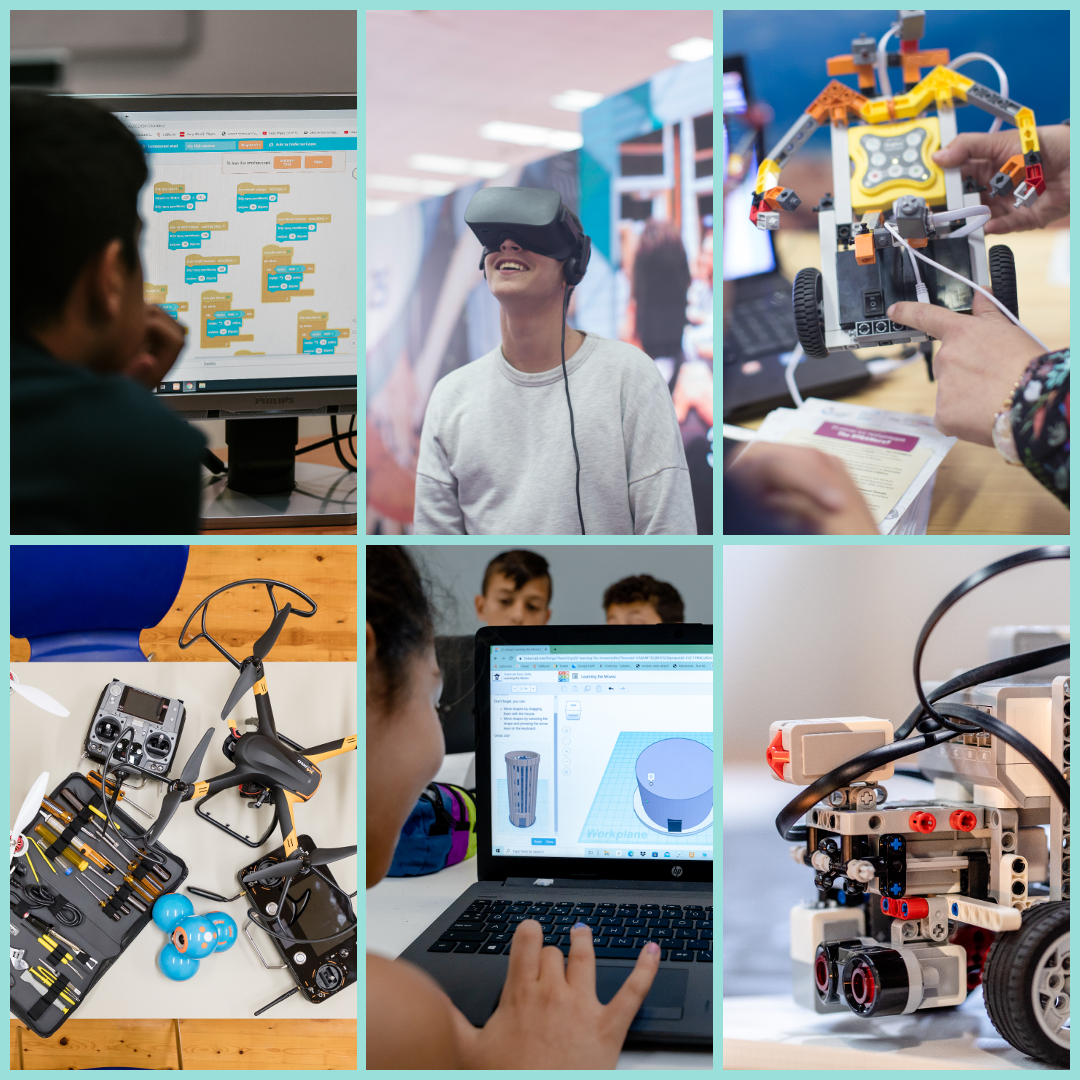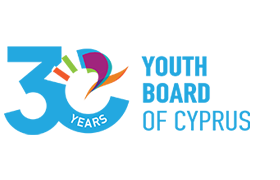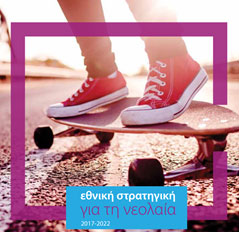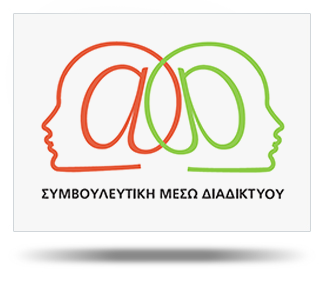
“The STEAMers” program from the Youth Board of Cyprus is operating again this year – Last day for registrations, Synday 01/12/2024
The Youth Board of Cyprus announces the new registration period for “The STEAMers” program. The programme’s main goal is to strengthen skills, develop imagination and creativity.
We are back with “The STEAMers Kidz”, a new dynamic educational programme that effectively focuses on the needs of today’s children and young teenagers, through an innovative approach that responds to modern educational trends and technological developments.
Our new proposal utilizes a series of modern teaching methods and digital tools of the interdisciplinary S.T.E.A.M methodology. (Science, Technology, Engineering, Arts and Mathematics), with an emphasis on Programming, Robotics, Algorithmic Thinking, Artificial Intelligence, Natural Sciences, and much more.
With the help of experienced instructors and the use of cutting edge technology equipment, our participants can develop critical thinking and problem solving skills, while strengthening cooperation, teamwork and positive communication skills.
The program is aimed at primary and secondary school children, providing a modern educational experience that combines learning with fun.
Each thematic unit will be completed in 24 weekly meetings lasting 90′ each.
To see more information, click below.
- Introduction to Robotics & ProgrammingThe “Robotics and Programming” workshop offers to children the opportunity to explore the exciting world of technology. Through creative activities and hands-on applications, students will learn to design, build and program robots, developing their skills in science, technology, engineering and mathematics (STEM) and beyond, as concepts from various fields of knowledge. The current workshop emphasizes the cultivation of critical thinking, creativity and teamwork, offering a fun and educational experience that promotes innovation and learning through play. This plan is designed to provide a balanced learning experience, combining theory and practice, with an emphasis on creativity, critical thinking and teamwork.
- Robotics and Natural Sciences through Experiments“Robotics and Science through Experiments” offers the opportunity for children to be actively involved in the learning process through an interdisciplinary approach. Robotics as a tool allows students to practically apply the theoretical knowledge they acquire in the Natural Sciences courses. Through building and programming robots, students understand basic concepts such as the laws of motion, energy, and more. They are also given the opportunity to observe and investigate natural phenomena in an environment where learning takes place through exploration and experimentation. This process enhances understanding of theory through practical application and also promotes the development of problem-solving and critical thinking skills.
- Robotics, Algorithmic Thinking and Mathematical PatternsRobotics has the potential to combine Algorithmic Thinking and Mathematical Patterns to provide children with learning experiences with an emphasis on problem solving. Through robotics, students apply algorithmic thinking by breaking down complex problems into simple steps that lead to the operation of a robot. Mathematical patterns are incorporated into this process, helping students recognize recurring relationships and structures when programming and building robots. Robotics also offers a hands-on application of algorithms and mathematics, allowing students to see in real time how their theoretical knowledge is translated into operational commands for a robot. This interdisciplinary approach enhances students’ understanding while cultivating skills such as problem solving, critical thinking and creativity.
- Advanced Robotics and Innovation – Manufacturing & Innovative SolutionsThe module “Advanced Robotics and Innovation – Constructions & Innovative Solutions” focuses on the development of complex robotic systems and the creation of innovative solutions to real everyday problems. This module enhances students’ skills in analysis, design and problem solving through the construction and programming of robots that perform specific functions. Students are challenged to use advanced technologies and programming while applying creative and innovative ideas to solve contemporary challenges. This module promotes collaboration, creativity and thinking outside the box, nurturing students’ skills as future citizens.
- Scratch Programming and Game CreationThe “Scratch Programming and Game Creation” module focuses on introducing students to programming through Scratch’s visual environment, enabling them to create interactive games. With Scratch, students can create interactive games, animations, and stories using characters, multimedia, and basic algorithmic structures. This promotes artistic expression and problem solving as students understand the fundamentals of programming in a simple and interactive way. Through game-making, logical thinking, programming skills and cooperation are developed, while imagination and self-expression are nurtured. This process combines learning and entertainment. Finally, Scratch can be combined with robotics platforms and sensors, allowing the creation of interactive projects in the real world.
- Robotics, Programming and the Arts (Music, Theatre, Art, Literature and Creativity)The combination of Robotics and Programming in relation to the Arts, combines technology with creative expressions from music, theater, art, literature and other art forms. This approach encourages students to explore the relationship between technology and artistic creation, promoting innovation and imagination. Children can, for example, program robots, “play” music, create interactive theater scenes or design audiovisual works of art. This synthesis of technology and the arts fosters creativity, critical thinking and collaboration, while allowing them to express ideas through a variety of media, approaching technology as a tool for artistic expression.
- Creating Digital Content with an Emphasis on Design“Creating Digital Content with Design Emphasis” focuses on developing students’ design and creativity skills through the use of a variety of digital tools and the production of technological artifacts, such as interactive presentations, videos, images, audio files, comics, avatars, digital stories, posters , posters etc.). From a pedagogical perspective, the design promotes analytical and synthetic thinking as students are challenged to combine aesthetics and functionality. Through this process, students develop their skills in problem solving, organizing ideas, and adaptability, while cultivating their digital and creative expression. The emphasis on design enables them to express themselves visually using modern digital tools, enhancing both their technical skills and imagination.
- Artificial Intelligence and Digital Content DevelopmentThe module “Artificial Intelligence and Digital Content Development” focuses on educating children about the basic principles of Artificial Intelligence (AI) and creating digital projects (texts, presentations, videos, images, audio, etc.) using AI tools. This module promotes critical thinking and creativity as students become familiar with the possibilities and applications of IT. In addition, developing digital content encourages them to express ideas and solve problems using technologies, thus cultivating digital skills, collaboration and responsible use of digital IT tools. An important element is that at the same time TN allows and facilitates the personalization and differentiation of the content for each student, according to his needs. This interdisciplinary approach equips students with knowledge that will be valuable to them in the digital world of the future.
| Categories | 1 Workshop | 2 Workshops | 3 Workshops | 4 Workshops |
| Annual Cost for 1 person | €100 | €150 | €180 | €200 |
| Annual Cost for 2 siblings (25%) |
25% off the total price |
|||
| Annual Cost for 3 siblings or more (50%) |
50% off the total price |
|||
| Europe and Youth Card holders |
50% off the total price |
|||
| People with Disabilities |
FREE |
|||
| Soldiers |
FREE |
|||
| Unemployed & Minimum Guaranteed Income (EEE) recipients |
FREE |
|||
The Payment is expected by ALL participants within 3 weeks from the starting date of their workshop. For siblings the payment of fees can be made in two equal instalments and the final payment should be settled within one month from the first.
Tuition will be paid through JCCsmart. If for any reason this cannot be implemented, please contact the local Youth Centre.
*PROOF OF PAYMENT MUST BE PRINTED AND GIVEN TO LOCAL MULTICENTERS OR SENT BY E-MAIL.*
The deadline for application submission for the academic year 2024-2025 has expired. Thank you for your interest.
All workshops of the programme will take place at the Youth Agency of Cyprus’ Youth Centres, which are located at the following locations:
NICOSIA
104 Athalassa Avenue, 2024 Strovolos *
Tel: 22877510 | [email protected]
Opening hours: 14:00-19:30 (Weekdays) & 09:00-13:30 (Saturdays)
LIMASSOL
23 Misiaouli & Kavazoglou 23, 3017 Limassol
Tel: 25871471 | [email protected]
Opening hours: 10:30-18:00 (Weekdays)
LARNACA
62 Faneromenis, 6025 Larnaca, 6025 Larnaca
Tel: 24822580 | [email protected]
Opening hours: 14:00-20:00 (Daily) & 09:00-13:00 (Saturdays)
PAFOS
Apostolou Pavlou & Gladstonos Corner, 8046 Paphos, 8046 Paphos
Tel: 26306419 | [email protected]
Opening hours: 13:00-20:00 (Weekdays) & 08:30-13:30 (Saturdays)
SOTIRA Famagusta
6 Ilias Tlauggis, 5390 Sotiras
Tel: 23722292 | [email protected]
Opening hours: 10:00-16:00 (Daily) & 09:00-13:00 (Saturdays)
AGROS
6 Stelios X” Petri Avenue, 4860 Agros
Tel: 25874042 | [email protected]
Opening hours: 14:00-18:30 (Daily) & 09:30-13:00 (Saturdays)
EYRYCHOU
Tel: 22877513 | [email protected]
Opening hours: 14:00-18:00 (Daily) & 10:00-13:00 (Saturdays)
*The workshops in Nicosia may be moved to another location in the middle of the academic year.




